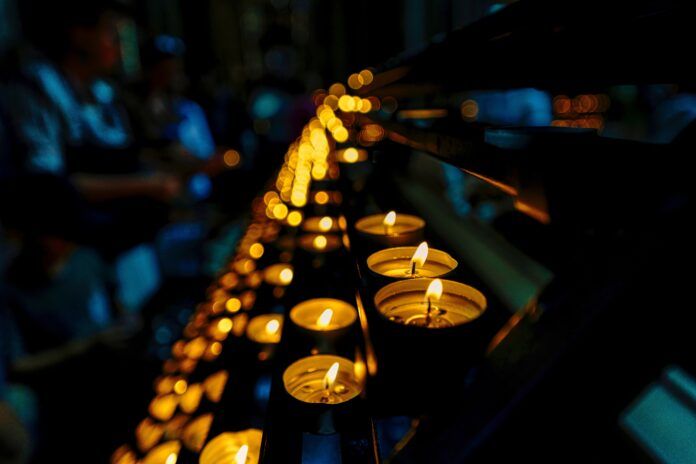During a candlelight vigil for the National Day of Remembrance and Action on Violence against Women the names of the 52 women in Ontario that have been killed this year because of violence will be read.
Hannah Lin, Executive Director of the YWCA Muskoka, says the vigil will be held at the Huntsville Public Library. It will start at 4 PM.
“It’s important to realize that it’s happening and that it’s happening in our community,” says Lin. She points out that 17 percent of the deaths this year were in rural areas like Muskoka.
She explains showing support starts with acknowledging what privileges we have that others don’t. Lin adds that supporting someone could be as simple as listening and being there when they need it, whether being a physical shoulder to lean on or being available to call. “Can you provide a safer space for them,” asks Lin.
“I think we all have a responsibility to do whatever we can,” she continues.
The National Day of Remembrance and Action on Violence against Women was established on Dec. 6, 1989, as a way to remember the 14 women killed during the École Polytechnique massacre in Montreal, Que. 33 years ago. Another 10 women and four men were injured in the shooting. While the perpetrator committed suicide, media reports since have said the shooting was an anti-feminist attack.
“They were aspiring engineers,” says Lin about the 14 women killed.
Geneviève Bergeron, Hélène Colgan, Nathalie Croteau, Barbara Daigneault, Anne-Marie Edward, Maud Haviernick, Maryse Laganière, Maryse Leclair, Anne-Marie Lemay, Sonia Pelletier, Michèle Richard, Annie St-Arneault, Annie Turcotte, and Barbara Klucznik-Widajewicz were the victims of what was, at the time, the deadliest mass shooting in Canadian history.
Lin points out that abuse comes in many forms. Physical, emotional, verbal, and, often for seniors, financial. “It’s an incredible act of courage to leave a situation that you know is imminently harmful,” says Lin. However, she adds it’s the period after they leave when they’re “most vulnerable.” Lin explains it can be difficult to find a proper place to stay and get the money needed to make the move. “Especially if you’re taking children with you,” she says.
Lin says often emotional abuse will continue even after the relationship is ended. “They may try to convince a woman that it’s not really that bad or it would be worse if they left,” she says.
“We’re getting there but it’s happening slowly,” says Lin about gender equality. “There’s lots more work that needs to be done.”



